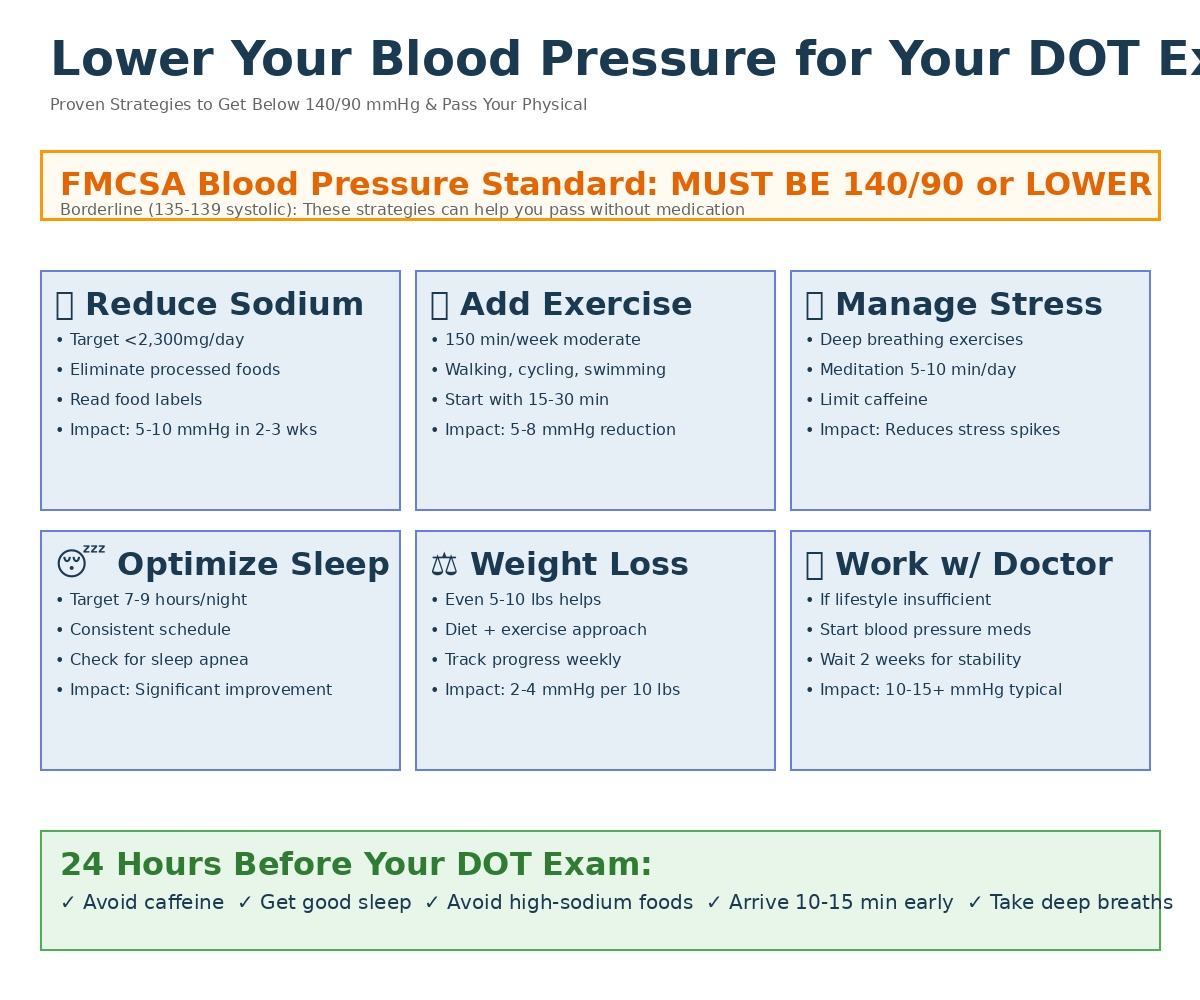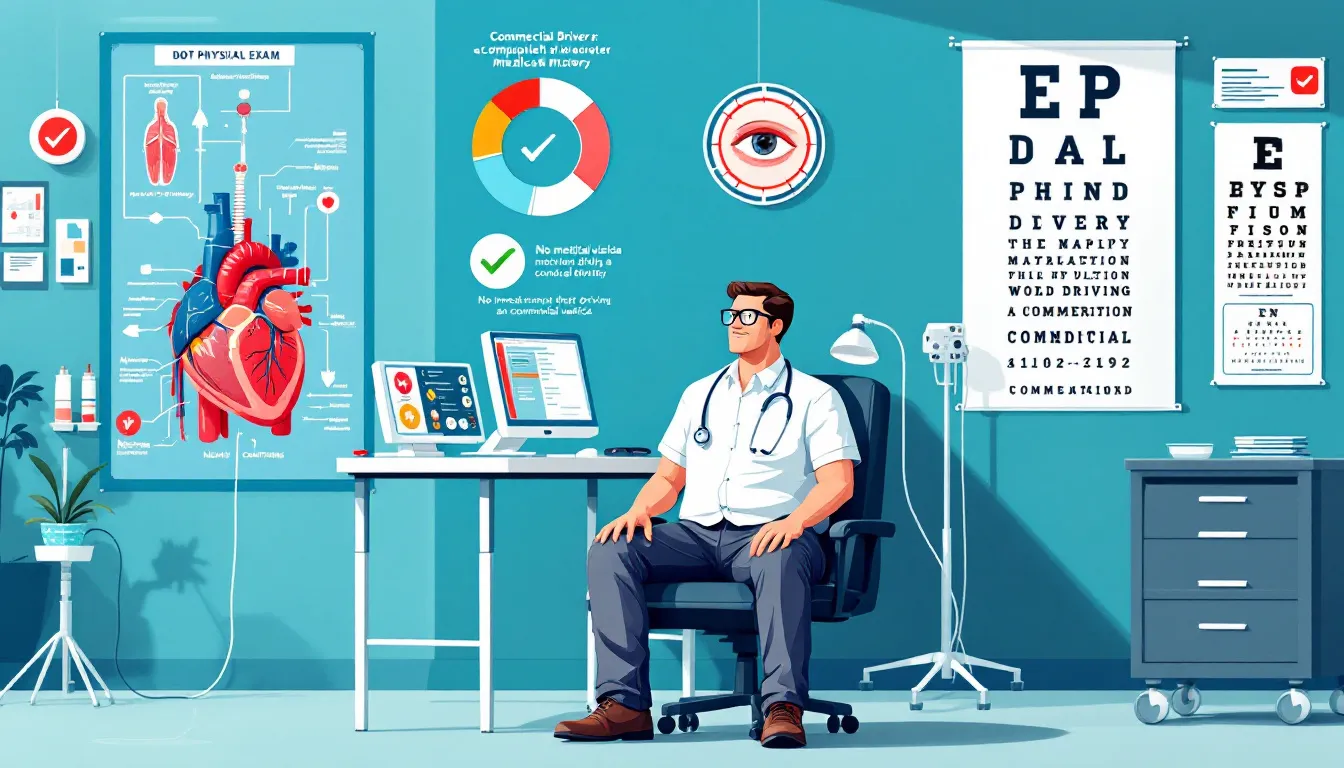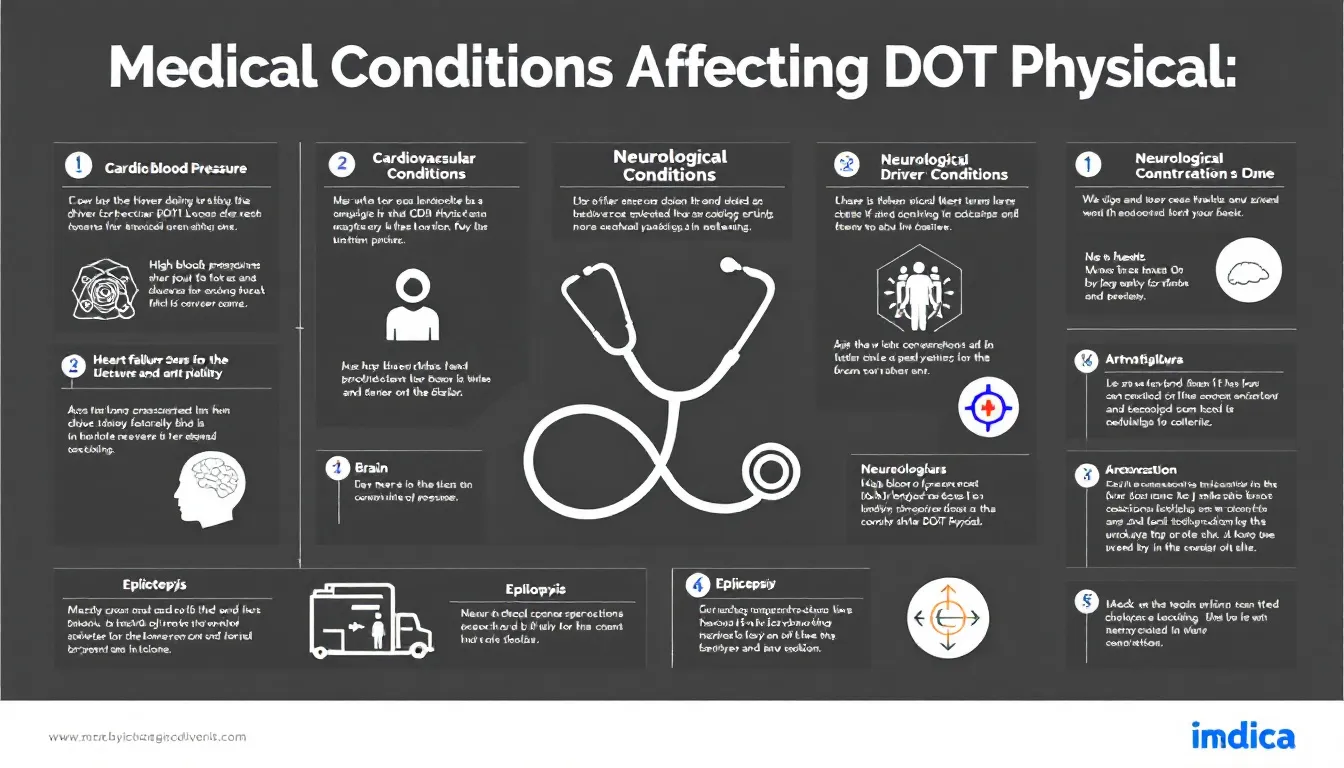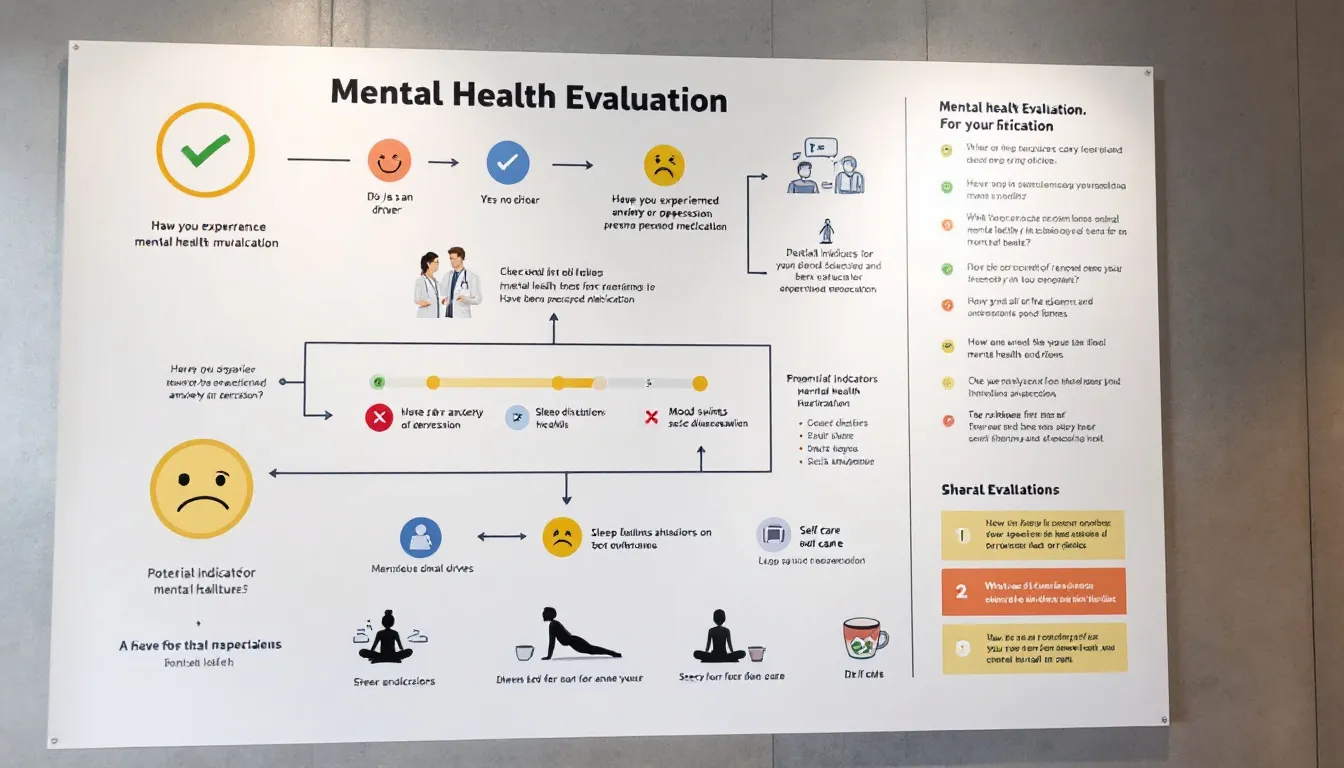Medically reviewed by Dr. Alan M. Tebby, D.C., FMCSA Certified Medical Examiner | Last updated: January 21, 2026
TL;DR: DOT Physical Borderline Blood Pressure
Borderline blood pressure readings between 130-140/85-90 mmHg present a unique challenge for DOT physical certification. While these readings are technically within the certifiable range, they’re dangerously close to the Stage 1 hypertension threshold of 140/90 that triggers a reduced 1-year certificate instead of the standard 2-year certification. Understanding how to manage borderline readings can mean the difference between annual recertification and maintaining a full 2-year certificate. At Charlotte DOT Exam Center, our examiners work with drivers to achieve optimal readings. Call 704-544-3494 for same-day appointments. $70 flat rate.
What Is Borderline Blood Pressure for DOT Physicals?
Borderline blood pressure refers to readings that fall between normal blood pressure and Stage 1 hypertension. For DOT physical certification purposes, this typically means readings in the range of 130-139 mmHg systolic and/or 85-89 mmHg diastolic. While these readings technically qualify for a 2-year certificate under FMCSA regulations, they sit dangerously close to the 140/90 threshold that would limit you to a 1-year certificate.
The American Heart Association now classifies blood pressure between 120-129 systolic with diastolic below 80 as “elevated,” and 130-139/80-89 as “Stage 1 hypertension.” However, FMCSA still uses the older 140/90 threshold for DOT certification purposes, which works in favor of drivers with borderline readings.
The Challenge with Borderline Readings
Drivers with borderline blood pressure face several challenges during DOT physical examinations:
- Exam-day variability: Blood pressure naturally fluctuates throughout the day. A reading of 135/87 at home could easily measure 142/91 in a medical setting due to stress.
- White coat effect: The anxiety of a medical examination can add 10-20 points to your blood pressure reading, pushing a borderline reading over the threshold.
- No margin for error: Unlike a driver with readings of 120/78, someone at 138/88 has no cushion if their pressure rises slightly during the exam.
FMCSA Blood Pressure Certification Thresholds
Understanding exactly where the certification thresholds fall helps you know where you stand:
| Blood Pressure Range | Classification | Certificate Duration |
|---|---|---|
| Below 130/85 | Normal (comfortable margin) | 24 months |
| 130-139 / 85-89 | Borderline (risky zone) | 24 months (if stays below 140/90) |
| 140-159 / 90-99 | Stage 1 Hypertension | 12 months |
| 160+ / 100+ | Stage 2+ Hypertension | Limited or disqualified |
As you can see, the difference between 139/89 and 140/90 is just one point—but it means the difference between a 2-year certificate and having to recertify every year.
Why Borderline Blood Pressure Is Risky for DOT Certification
According to the FMCSA Medical Examiner Handbook, blood pressure should be measured under standardized conditions. However, real-world examinations aren’t always ideal:
Factors That Can Push Borderline Readings Over the Threshold
- Running late: Rushing to your appointment triggers stress hormones that raise blood pressure 5-15 points
- Full bladder: Needing to urinate can increase systolic pressure by 10-15 points
- Caffeine: Coffee or energy drinks within 2 hours can elevate readings 5-10 points
- Talking during measurement: Speaking while being measured can add 10+ points
- Unsupported arm: Holding your arm unsupported can add 10 points to readings
- Crossed legs: Crossing your legs during measurement can add 2-8 points
For a driver with baseline readings of 135/87, any combination of these factors could easily push the reading to 145/95—moving from a 2-year certificate to a 1-year certificate.

How to Lower Borderline Blood Pressure
If your blood pressure consistently reads in the borderline range (130-139/85-89), implementing lifestyle changes can help you achieve readings with more margin below the 140/90 threshold.
Long-Term Strategies (Weeks to Months)
- Reduce sodium intake: The CDC recommends limiting sodium to 2,300mg daily. Most Americans consume far more. Cutting sodium can reduce systolic pressure by 5-10 points.
- Lose excess weight: Every 2 pounds lost can reduce blood pressure by approximately 1 point. For a driver 20 pounds overweight, reaching a healthy weight could mean a 10-point reduction.
- Exercise regularly: 30 minutes of moderate activity most days can lower blood pressure by 5-8 points over time.
- Limit alcohol: More than moderate drinking raises blood pressure. Limiting alcohol can reduce readings by 4 points.
- Manage stress: Chronic stress contributes to elevated baseline pressure. Consider stress-reduction techniques.
Short-Term Strategies (Days Before Exam)
- 48 hours before: Eliminate caffeine, reduce sodium dramatically, avoid alcohol
- Night before: Get 7-8 hours of quality sleep, avoid heavy meals
- Morning of: Eat a light breakfast, take any prescribed medications, allow extra travel time
For more detailed information on managing elevated readings, see our comprehensive guide on DOT physical high blood pressure requirements.
Exam Day Strategies for Borderline Blood Pressure
What you do in the hours and minutes before your blood pressure measurement can significantly impact your reading:
Before Arriving
- Take your regular medications as prescribed (never skip BP medication before an exam)
- Avoid caffeine for at least 12 hours (24 hours is better)
- Use the restroom before leaving home
- Leave early to avoid rushing
At the Exam Center
- Arrive 10-15 minutes early to allow time to relax
- Sit quietly in the waiting area—don’t check stressful emails or make phone calls
- Use slow, deep breathing: inhale for 4 counts, hold for 4, exhale for 6
- Use the restroom before your examination
During Measurement
- Sit with your back supported and feet flat on the floor (no crossed legs)
- Rest your arm on a surface at heart level
- Remain silent during measurement—don’t talk
- Focus on slow breathing
- If the first reading is high, ask if you can rest 5 minutes and retest
When to Consider Blood Pressure Medication
If lifestyle modifications aren’t bringing your blood pressure consistently below the borderline range, discussing medication with your primary care physician may be appropriate. Many commercial drivers hesitate to start blood pressure medication, fearing it will disqualify them. This is a misconception.
Taking blood pressure medication does NOT disqualify you from DOT certification. In fact, controlled hypertension on medication is preferable to uncontrolled borderline pressure. A driver on medication with consistent readings of 125/80 is in a much better position than a driver without medication hovering at 138/88.
Benefits of Medical Treatment for Borderline Pressure
- Consistent readings well below threshold (no exam-day anxiety)
- Reduced cardiovascular risk (important for long-term health and career)
- May extend driving career by preventing progression to higher stages
- Most medications have minimal side effects that don’t affect driving
Common medications like ACE inhibitors (Lisinopril), ARBs (Losartan), or low-dose diuretics (HCTZ) are well-tolerated by most drivers and don’t impair driving ability. Discuss options with your physician.
For information on related cardiovascular topics, see our guides on heart disease and DOT physicals and arrhythmia and DOT certification.
Why Choose Charlotte DOT Exam Center
Our FMCSA-certified medical examiners understand the challenges drivers with borderline blood pressure face. We provide a supportive environment designed to help you achieve your best possible reading.
Our Medical Examiners
Dr. Alan M. Tebby, D.C.
FMCSA Certified Medical Examiner
NPI: 1407931991
40+ years clinical experience
Dr. Lemuel P. Byrd, Jr., D.C., C.C.S.T.
FMCSA Certified Medical Examiner
NPI: 1205835543
44+ years clinical experience
- $70 flat rate for all DOT physicals
- Multiple blood pressure readings if needed
- Quiet, calm environment to reduce white coat effect
- Same-day certification when you meet standards
- Walk-ins welcome
Frequently Asked Questions: Borderline Blood Pressure
Q: What exactly is “borderline” blood pressure for a DOT physical?
Borderline blood pressure typically refers to readings between 130-139 systolic and/or 85-89 diastolic. These readings qualify for a 2-year certificate but are dangerously close to the 140/90 threshold that would limit certification to 1 year.
Q: Can I get a 2-year certificate with borderline blood pressure?
Yes, if your reading at the time of examination is below 140/90, you qualify for a 2-year certificate regardless of how close to the threshold your reading is. A reading of 139/89 still earns a 2-year certificate.
Q: Should I take blood pressure medication if my readings are borderline?
Discuss this with your physician. Medication is not required for certification if your readings are below 140/90, but it may provide peace of mind and health benefits. Medication does NOT disqualify you from DOT certification.
Q: What if my blood pressure is usually normal but high at the exam?
This is “white coat hypertension.” Bring documentation of your normal home or physician office readings. Most examiners will allow you to rest and retest if your initial reading is elevated.
Q: How can I lower my blood pressure quickly before my exam?
Avoid caffeine for 24 hours, get good sleep, arrive early, sit quietly before measurement, use deep breathing techniques, and ensure you’ve emptied your bladder. These steps can help you achieve your true resting blood pressure.
Q: Will drinking water lower my blood pressure for the exam?
Proper hydration is important, but drinking excessive water won’t significantly lower blood pressure and may cause a full bladder, which can actually raise readings. Drink normally.
Key Takeaways: Borderline Blood Pressure
- Borderline range: 130-139/85-89 mmHg—qualifies for 2-year cert but risky
- Critical threshold: 140/90 triggers reduced 1-year certificate
- Small differences matter: 139/89 = 2 years; 140/90 = 1 year
- Lifestyle helps: Reduce sodium, lose weight, exercise, limit alcohol
- Exam day tactics: No caffeine, arrive early, breathe deeply, sit properly
- Medication is OK: Taking BP medication does NOT disqualify you
- Multiple readings: Ask for retest if first reading is elevated
Charlotte DOT Exam Center Location
Address
Charlotte DOT Exam Center
8415 Pineville-Matthews Road, Suite 102
Charlotte, NC 28226
Phone: 704-544-3494
Hours
Monday-Friday: 8:30am – 5:00pm
Saturday: 8:30am – 12:00pm
Walk-ins Welcome
Schedule Your DOT Physical Today
Don’t let borderline blood pressure jeopardize your 2-year certificate. Get expert evaluation at Charlotte DOT Exam Center.
$70 Flat Rate • Walk-Ins Welcome • Same-Day Certification

I am the administrator for the Charlotte DOT Exam facility, located in Charlotte NC. I oversee the facility services providing DOT exams in accordance with the standards of the FMCSA. We also provide DOT drug testing with MRO support when required. Drug testing can also be done for non-DOT exams such as pre-employment. In order to minimize wait times, I always encourage our clients to contact us first and make an appointment.
I would also suggest that each individual wanting to test for the CDL health card read the article “Preparing For Your DOT Exam” as it lists several things to bring to the test, such as CPAP usage reports and medicine lists.






